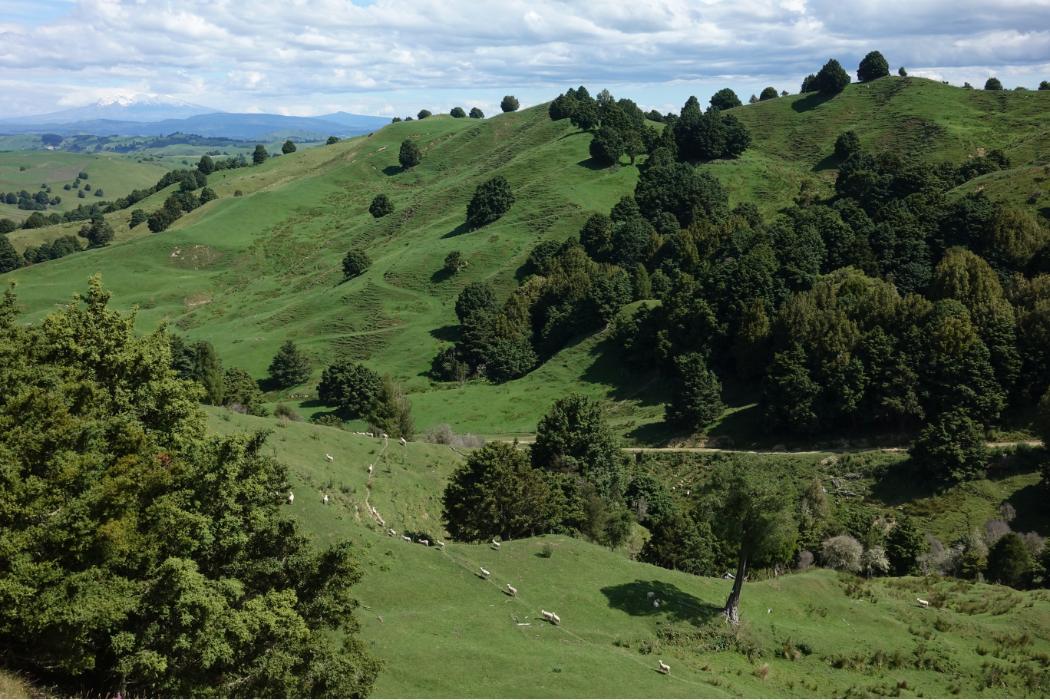Southern farmers have co-ordinated an aid project to help drought-hit Hawke’s Bay colleagues.
BY: SANDRA TAYLOR
With many parts of the country facing significant feed deficits, a coordinated effort is in place to keep industry abreast of the situation and provide support to affected farmers.
The Ministry for Primary Industries (MPI), Dairy NZ, Beef + Lamb New Zealand, Federated Farmers, DeerNZ, the Rural Support Trust and farm consultancy firm AgFirst have all joined forces to put comprehensive and coordinated feed planning and support services in place.
At the beginning of July, farmers representing 50,000 hectares of sheep and beef farmland had accessed these services.
Waikato-based AgFirst farm consultant James Allen has been charged with the job of putting together a national feed survey, gathering regional data including average pasture covers, pasture growth rates and supplementary feed supplies.
The first of these reports was put together in early February and they are now being compiled fortnightly. They help MPI drive a co-ordinated response to the feed shortages and feed information back to farmers and their communities.
At the start of July the regions with the greatest drought-related feed deficits continued to be Hawke’s Bay with an estimated deficit of 150,000 tonnes drymatter, Northland, and the top of the South Island. James says Southland has its own set of problems with very wet weather over summer affecting feed crop yields.
Going into calving, dairy farms on the Hauraki Plains were well below target pasture covers, while at the start of July, sheep and beef farmers in Hawke’s Bay were sitting on average pasture covers of 12-1300kg drymatter/ha. Further south in Marlborough, pasture covers were averaging 1500kg DM/ha, which were well below target for that time of the year.
James says as well as buying in feed, farmers had been using every tool in the toolbox such as de-stocking, nitrogen application and prioritising stock classes.
“They’ve had to use every tool in the toolbox for this one.”
James says there were still reserves of straw and grain available in Canterbury but there is some price resistance to these feeds, and while palm kernel is also readily available there are issues with it because sheep don’t like it and many farms don’t have the infrastructure or terrain to make feeding this novel feed feasible.
“Nationally, there is enough feed, including palm kernel, but we are seeing some resistance around pricing to get it to the right place.”
There were some initiatives under way to subsidise the cost of transporting feed around the country.
James says there had been some concern about palm kernel supplies, with importers requiring market certainty before loading ships, but this had been resolved and the feed was still available.
Heading into the coldest months, James says most commercial farmers in the worst affected areas have destocked but it will be at least eight weeks before farmers are through the worst of this situation.
The number of levers they can pull has been reduced with cold weather ruling out nitrogen applications, and farmers will be set-stocking for lambing over the coming weeks, making feeding out difficult.
James says there are no regions with true surpluses to absorb trading stock but Taranaki and Central and South Waikato have all fared reasonably well over the past few months. King Country has sufficient feed to get through winter while Wairarapa and Manawatu are just hanging in there.
Further south, farmers in South Canterbury and Otago are also in a good position with adequate feed supplies.
He says a lot depends on how the winter pans out and very cold weather could cause even more problems for farmers in those drought-affected regions.
In spring, there will be regions with surpluses and many farmers who have de-stocked, even those in the Hawke’s Bay, will be looking to rebuild stock numbers. This brings its own set of challenges as farmers strive to maximise profitability on the back of a tough year while rebuilding their businesses.
As part of the feed planning response, AgFirst farm consultants have been writing and regularly updating case studies on sheep and beef farms in Northland, Hawke’s Bay, Southland and North Canterbury.
These case studies follow the farmers and their management strategies as they deal with significant feed shortages. They can be found on the Beef + Lamb New Zealand website.




